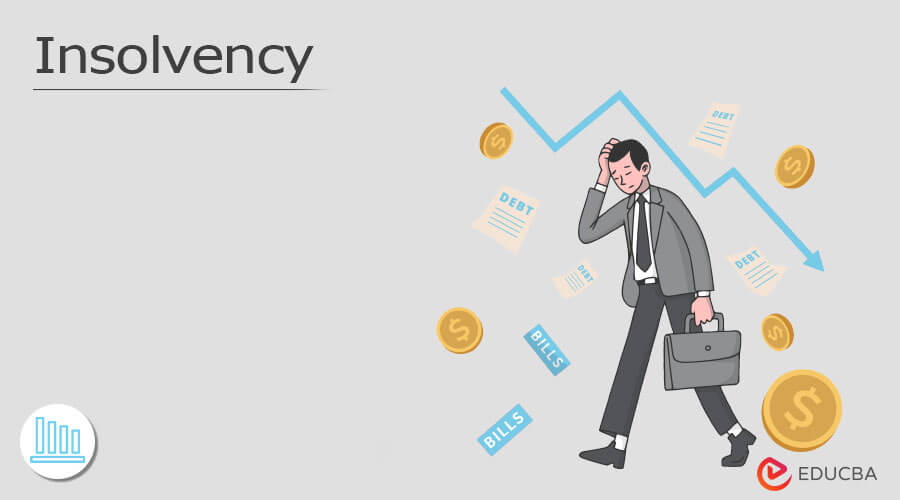Fascination About Insolvency Practitioner
Fascination About Insolvency Practitioner
Blog Article
Unknown Facts About Insolvency Practitioner
Table of ContentsHow Insolvency Practitioner can Save You Time, Stress, and Money.8 Easy Facts About Insolvency Practitioner DescribedMore About Insolvency PractitionerSome Ideas on Insolvency Practitioner You Should KnowThe Single Strategy To Use For Insolvency PractitionerAbout Insolvency PractitionerInsolvency Practitioner for Dummies
Bankruptcy is when obligations are more than the value of the business, or when a debtor can not pay the financial obligations they owe. A company can become insolvent as a result of a variety of situations that cause inadequate capital. When confronted with bankruptcy, a company or individual can call lenders directly and restructure debts to pay them off.Bankruptcy can cause bankruptcy process, in which lawful activity will certainly be taken versus the bankrupt person or entity, and properties might be sold off to repay arrearages. Entrepreneur may contact creditors straight and restructure debts into more manageable installations. Lenders are commonly open to this strategy because they want to be settled and prevent losses, even if the settlement is on a postponed routine.
What Does Insolvency Practitioner Do?
The proprietor produces a proposal detailing how the financial obligation may be reorganized utilizing cost decreases or other plans for support. The proposal reveals creditors just how business might create sufficient capital for successful operations while paying its debts. Typically, a forgiven financial debt might be thought about earnings by the Irs (INTERNAL REVENUE SERVICE).

Rumored Buzz on Insolvency Practitioner
Business may end up paying huge amounts of money in damages and be not able to continue procedures. When operations stop, so does the firm's income. Lack of income leads to unpaid bills and financial institutions asking for money owed to them. Some firms come to be bankrupt because their products or services don't evolve to fit consumers' altering demands.
Expenditures go beyond incomes and expenses continue to be unpaid. Cash-flow insolvency takes place when a business has the assets to cover their debts but they are in the wrong form, such as actual estate rather of liquid funds. Balance-sheet bankruptcy, on the various other hand, indicates an absence of assets in any kind of kind to cover financial obligations.
The internal revenue service states that a person is insolvent when the complete liabilities go beyond complete possessions. A insolvency, on the other hand, is an actual court order that portrays how a bankrupt person or company will pay off their creditors, or exactly look at more info how they will market their possessions in order to make the repayments.
The Main Principles Of Insolvency Practitioner

Comprehending the elements that can result in bankruptcy, such as overspending, can help you avoid insolvency and its effects.
What Does Insolvency Practitioner Mean?
It is popular that directors and policemans of firms (and supervisors of minimal responsibility companies) owe fiduciary responsibilities to their companies and their investors (or participants). These fiduciary responsibilities are specified by state statutes and, though there are find more info variations from state to state, they generally include an obligation of commitment and an obligation of care.
The duty of treatment requires supervisors and policemans to work out diligence, to make educated decisions, and to act in great belief so that their activities are in the very best rate of interest of the business. Though beyond the scope of this conversation, some states enable these obligations to be limited either by so noting in the organizational documents or complying with various other demands.
The Best Guide To Insolvency Practitioner
Most states define insolvency in two ways( 1) when a firm's obligations become more than the sum of its properties or (2) when the company becomes incapable to pay its financial debts as they end up being dueand embrace both meanings (Insolvency Practitioner). The change in tasks occurs because when a company is bankrupt, there is no worth in the company beyond that owed to the firm's creditors so that the equity owners no longer have an economic risk in the company
Be mindful concerning giving shareholders special therapy at the expense of creditors More Bonuses (e.g., accrediting and moneying a returns or a stock redemption). Be cautious concerning advantageous treatment between courses of shareholders. Clear up efforts to find out all the facts prior to taking a specific training course of activity; directors must genuinely think that any kind of choices made are in the finest interests of the company in its entirety (i.e., choices will be examined in hindsight taking into account the effect of such activities on the company).
In any kind of bankruptcy or insolvency proceeding, payments made to certain lenders at the expense of other lenders can be clawed back, especially if there is some link between the firm and the lender. Think about proposing at an annual shareholder meeting (or any kind of other conference of stockholders) a resolution affirming that all previous company choices and actions taken by the supervisors and officers of the corporation were absorbed excellent faith after an exercise of practical care.
The 5-Second Trick For Insolvency Practitioner
Completely disclose any type of individual or company relationships with parties on the other side of transactions entailing the firm to avoid the look of a dispute of passion. In evaluating possible fund increasing deals or a sale of assets of the distressed company, be mindful that these purchases might be looked at later on because of any kind of subsequent expansion of directors' fiduciary duties to consist of lenders.
Report this page